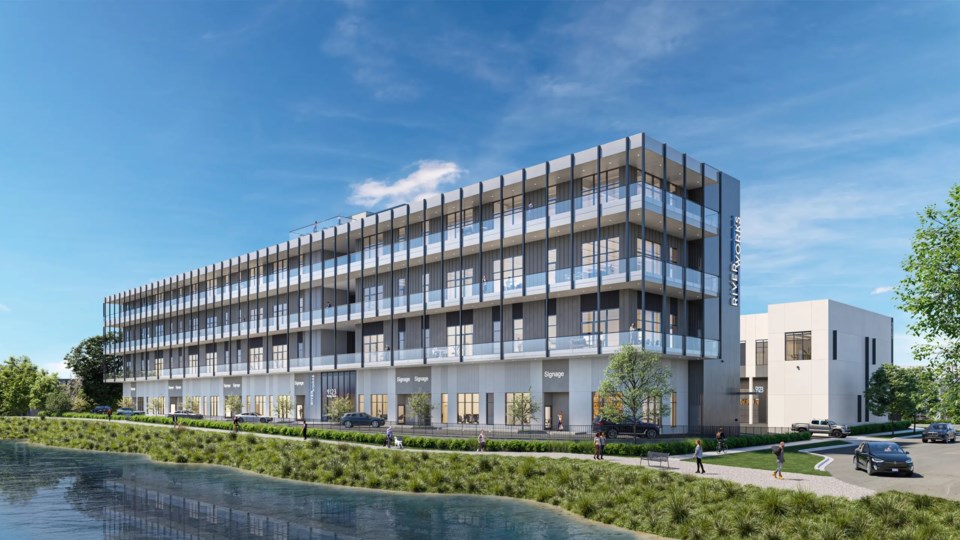Perspectives on Metro Vancouver’s real estate industry outlook for the remainder of 2024 are faintly lined with optimism, even as deal volume remains sluggish.
The tepid start to the year can be attributed to two factors: A scarcity of high-quality assets and a more discerning and consolidated buyer pool, according to Kirk Kuester, executive managing director at Colliers Canada in Vancouver.
While forecasts show improvement over 2023 and transaction activity has picked up, the overall volume of deals closed so far this year has been lower than anticipated.
The dollar volume of transactions above $1 million in the region during the first two months of 2024 was 49 per cent below where it was in the first two months of 2023. Year-to-date, the number of transactions is down 48 per cent year over year, according to Colliers.
“Behind the scenes, there is a lot of activity,” said Kuester. “I can speak from what we’re doing in our office—that if this business all starts to firm up, the second quarter will be quite strong in relation to the first.”
There were 93 sales in Metro Vancouver above $1 million across all asset classes for a total dollar volume of $591 million in January and February. By comparison, there were 183 sales during the same time period in 2023, collectively worth over $1.13 billion.
By the end of February, there were 14 transactions above $10 million, down from 26 in 2023.
“The year started off very slow despite what we feel to be a bounce-back year, just given the fundamentals in the market forecast around interest rates. We remain confident in the year shaping up much stronger than it started, but that’s where we are today,” Kuester said.
Jessica Toppazzini, managing director for Avison Young in Vancouver, said that emotions are “patiently optimistic.”
The retail and industrial asset classes continue to be the most desirable from an investment standpoint, she said, adding that they remain the “darlings” of the real estate market following a strong end to 2023.
“A lot of these bigger sales for retail—it makes sense. They’ve got redevelopment land; they’ve got great strong covenants and there’s a shift. It’s not just people buying online,” she said, “they’re going to malls and they’re going to storefronts.”
Average vacancy in high-traffic areas such as Robson Street, Yaletown and Kitsilano remained unchanged at 3.9 per cent when compared to June 2023, according to a Jan. 24 report from Colliers.
Across Metro Vancouver, average vacancy decreased to 0.7 per cent from 1.5 per cent since last summer, leaving hopeful tenants “hard-pressed to find suitable options,” Kuester said.
“The leasing market remains strong for vacancy in and around retail and the investment appetite for retail product remains strong, with very little supply being available,” he said, adding that population growth and increasing consumer demand are also supporting the market.
The sale of Strawberry Hill Shopping Centre in Surrey for $155 million, in addition to the sale of just over four hectares of land in Surrey’s Panorama Village area for $72 million, speak to the demand for “quality retail and the belief in the long-term fundamentals of the asset class,” Kuester said.
The Strawberry Hill sale was ranked as B.C.’s second-biggest real estate deals of 2023, according to BIV list data (page 10).
“Both of those centres were sold at very strong pricing from a seller’s perspective and if compared against similar-type sales anywhere else in the country, [they] would reflect quite a premium,” he said.
The industrial market in Metro Vancouver also remains competitive, despite a vacancy rate that rose to 1.9 per cent in the fourth quarter of 2023—the sixth consecutive quarterly increase.
As of the end of last year, lease rates were $21.87 per square foot in the region, down 0.5 per cent when compared to the third quarter of 2023, but up 1.2 per cent year over year.
“That run-up that we saw from the previous years, we’re expecting that to slow down and hold steady,” said Topazzini.
Edgar Buksevics, executive vice-president at Jones Lang LaSalle Real Estate Services Inc., cited the sale of a Burnaby warehouse leased by Amazon Inc. (Nasdaq:AMZN) to Zara owner and billionaire Amancio Ortega for “close to mid-$300 million” as evidence that the “appetite for large deals has never been an issue.”
“I don’t think we’ve ever had a Vancouver appeal issue—we’ve had a pricing issue,” he said. “Rightfully so, but I think that’s starting to flush its way through.”
Buksevics added he expects to see the gap between asking and bid prices narrow by the second or third quarter of 2024.
“I do think we’ll see a lot more transactions,” he said.
Two of the most notable office space buildings to go on sale in 2023 were 401 W Georgia St. and 402 Dunsmuir St.—two class-A properties that were first reported to be on sale at the end of June 2023.
“That was one of the examples of a sale where everybody was looking to hang their hat in terms of understanding the valuation,” said Topazzini.
While a price has been reported in the media, Kuester said he is not able to comment on the exact number until the deals are confirmed as closed.
Metro Vancouver’s office market vacancy rate rose to 8.6 per cent in Q4 from Q3, with downtown Vancouver at 11.8 per cent, according to Colliers.
“The demand, the buyers and investors, interested in office today are certainly fewer than would show up on any other type of offering,” said Kuester.
“Having said that, there are opportunistic investors that would like to buy office in today’s environment, but unfortunately would like to buy office at prices or returns that sellers aren’t prepared to consider.”





